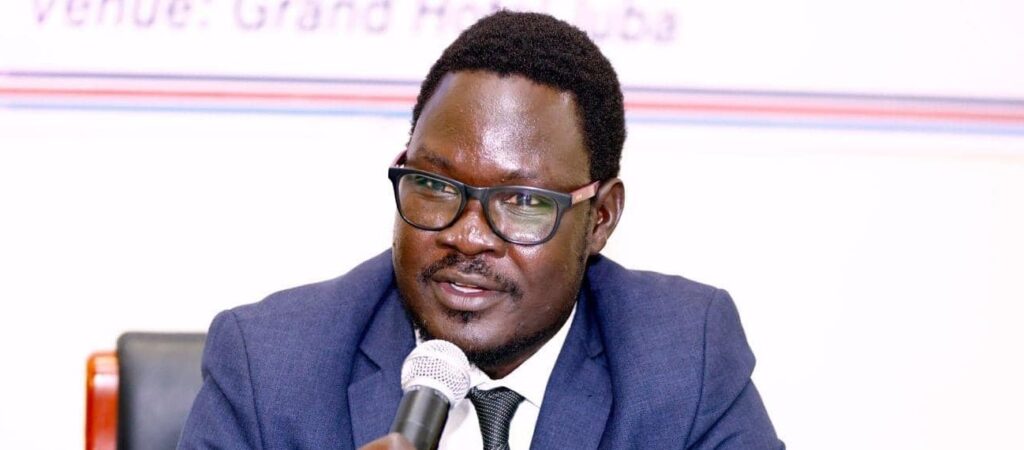The recent peace agreement signed by General Simon Gatwech Duol, leader of the SPLA-IO Kitgwang faction, with the South Sudanese government has stirred significant political attention. Duol’s decision to accept the role of Deputy Commander-in-Chief of the South Sudan People’s Defense Forces (SSPDF) marks a significant shift in his relationship with the government, especially given that he previously turned down an appointment as Presidential Peace Advisor.
This move signifies a deliberate political and military maneuver by Duol, reflecting his desire for greater power-sharing and formal involvement in the country’s defense structure. The position of Deputy Commander-in-Chief, a post that was previously held by the late General Poulino Matip Nhial in 2006 before his passing, had been left vacant for years. The decision to revive this role has raised questions, with many perceiving it as an “accommodation post”—one that does not hold substantial influence over key decision-making in the country. The position had long remained dormant, prompting debates about its relevance and importance in South Sudan’s current political landscape.
Interestingly, the revival of this role coincides with the recent appointment of General Johnson Olony, who, like Duol, had defected from the SPLA-IO. Olony’s appointment to the position of Deputy Chief of Staff for Mobilization and Disarmament highlights the evolving and complex nature of alliances within South Sudan’s political and military spheres. However, Duol and Olony later disagreed on leadership, each leading separate factions, further underscoring the fluidity of alliances in the country.
For Duol, the decision to accept the Deputy Commander-in-Chief position is a strategic one. This role allows him to integrate his faction’s forces into the national military structure, providing a formal pathway for his fighters to transition from rebel status into a legitimate part of the military. This is a common practice in peace processes, where armed groups are brought into the national defense forces to ensure long-term stability and prevent future conflicts.
Strategic Calculations and Military Influence
The refusal of the Presidential Peace Advisor role can be seen as a move to maintain military influence. The position of Presidential Peace Advisor, though politically significant, may not have provided Duol with the same control over military matters as the Deputy Commander-in-Chief role does. By choosing to remain in a military position, Duol retains command over his forces and remains in a position of strength, both politically and militarily.
The SPLA-IO Kitgwang faction has faced several challenges, including limited resources, internal divisions, and fluctuating popular support. By accepting a prominent position within the government, Duol secures a future for his faction’s fighters and ensures that his group will be represented in the national security apparatus. This deal could prevent fragmentation within his faction, provide access to military resources, and ultimately strengthen his influence within South Sudan’s complex political system.
Furthermore, Duol’s acceptance of this military role could also be viewed as a preparation for future political negotiations. As Deputy Commander-in-Chief, he will wield significant influence over any future discussions regarding governance, resource distribution, or military reforms. This positions him as a key player in any upcoming negotiations, allowing him to use his military role as leverage to advance his faction’s interests.
Commitment to Peace and National Integration
The Kitgwang faction’s advance team arriving in Juba this week signals a deepening commitment to the peace agreement. Duol’s condition for bringing his soldiers with him emphasizes the importance of military integration as part of the peace process. This indicates that Duol’s faction is not just seeking political power but also wants a concrete role in the national defense structure, ensuring that his forces are included in the formal peace process.
The government’s willingness to integrate Duol’s forces into the SSPDF reflects a broader commitment to national reconciliation and peacebuilding. By incorporating all factions, including those that have been in armed opposition, into the national security framework, the government signals its intent to promote stability and unity in South Sudan.
A Strategic Shift Toward Consolidating Power
General Simon Gatwech Duol’s decision to sign a peace deal and accept the Deputy Commander-in-Chief role represents a significant shift in his political and military strategy. It reflects his desire to secure military influence, ensure the integration of his forces into the national defense structure, and consolidate his faction’s power.
Gen. Gatwech’s decision to stay out of the ongoing peace talks in Kenya is likely influenced by a combination of factors, including unresolved leadership issues with other opposition factions, a desire to retain military influence, skepticism toward the peace process based on past experiences, a preference for direct engagement with the government, trust concerns, and strategic timing for future negotiations.
The SPLA-IO Kitgwang split from Riek Machar’s main SPLA-IO faction, and there have been significant leadership disagreements between Duol and Machar. This division within the opposition means that Duol might not see the peace talks in Kenya as an avenue that accurately represents his faction’s interests, especially if he believes that his group’s concerns are not being adequately addressed.
However, the success of this peace agreement will depend on the smooth integration of the Kitgwang faction into the SSPDF, the commitment of all parties involved, and the careful management of any tensions that may arise in the political and military spheres. As South Sudan continues to navigate its complex peace process, Duol’s move could set the stage for future political negotiations, strengthening his position within the national security structure and ensuring his faction’s role in shaping the country’s future.
The writer, Chuol Jany Bol, is the chief editor of Catholic Radio Network in South Sudan. He can be reached via email: chuoljaany@gmail.com
The views expressed in ‘opinion’ articles published by Radio Tamazuj are solely those of the writer. The veracity of any claims made is the responsibility of the author, not Radio Tamazuj.




